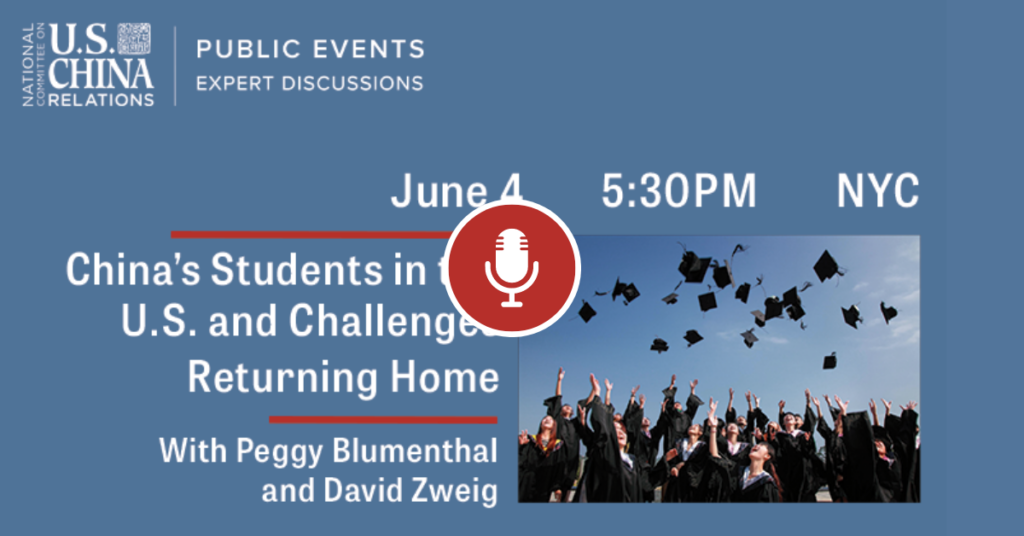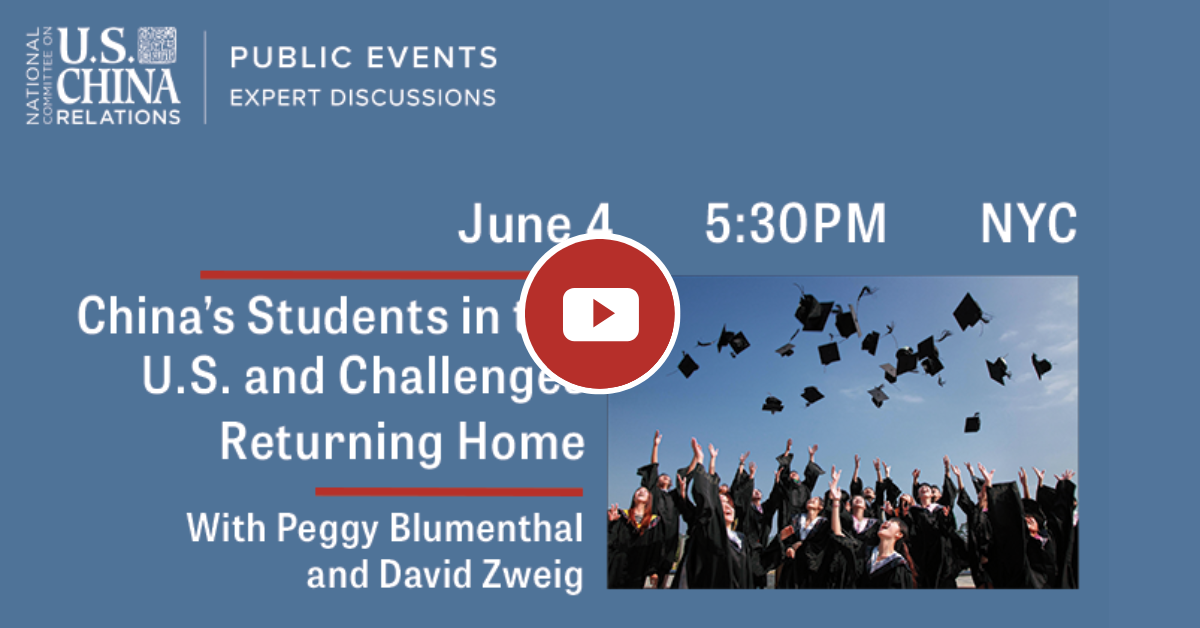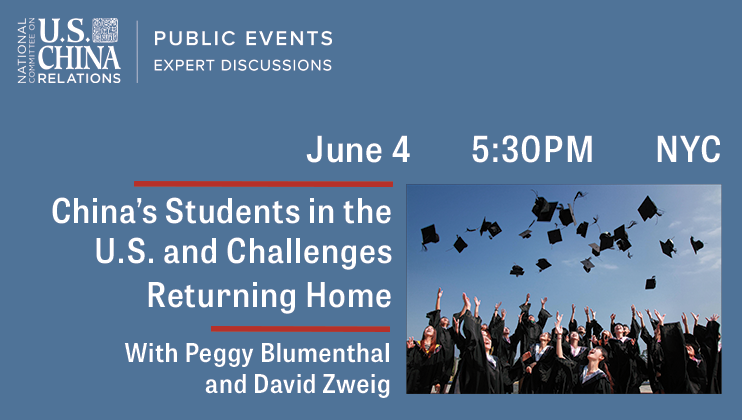According to the most recent Open Doors Report, published by the Institute of International Education (IIE) in late 2017, China remains the number one sending country of international students to the United States. Approximately 350,000 Chinese currently attend American colleges and universities at the undergraduate and graduate levels. There are also growing numbers of Chinese students at American high schools. On June 4 the National Committee hosted a program to discuss the impact of Chinese students on American academic institutions (in February 2018 FBI Director Christopher Wray and Director of National Intelligence Dan Coats suggested that Chinese students and scholars conduct espionage on American campuses), and what happens when (if?) the students return to China. The first topic was addressed by Ms. Peggy Blumenthal, senior counselor to the president of IIE; while Dr. David Zweig, professor of political science at the Hong Kong University of Science and Technology, shared his research findings on returnees.
Peggy Blumenthal is Senior Counselor to the President, Institute of International Education (IIE). After 20 years of service at IIE, Ms. Blumenthal became its chief operating officer in 2005, shifting to the role of senior counselor in 2011. Selected publications include International Students and Global Mobility in Higher Education: National Trends and New Directions (Palgrave MacMillan, 2011), co-edited with Dr. Rajika Bhandari of IIE, and a recent article, “Welcoming the New Wave of Chinese Students on US Campuses: Changing Needs and Challenges,” in the summer 2017 edition of New Directions in Student Services, coauthored with Sonny Lim of Rice University.
David Zweig is Chair Professor, Division of Social Science, and Director, Center on China’s Transnational Relations (www.cctr.ust.hk), at the Hong Kong University of Science and Technology. He is an adjunct professor, School of Social Sciences and Humanities, National University of Defense Technology, Changsha, Hunan, and Vice-President of the Center on China’s Globalization (Beijing). He is the author of four books, including Internationalizing China: Domestic Interests and Global Linkages (Cornell Univ. Press, 2002) and a new edited volume, Sino-U.S. Energy Triangles: Resource Diplomacy under Hegemony, with Hao Yufan (Routledge, 2016).


